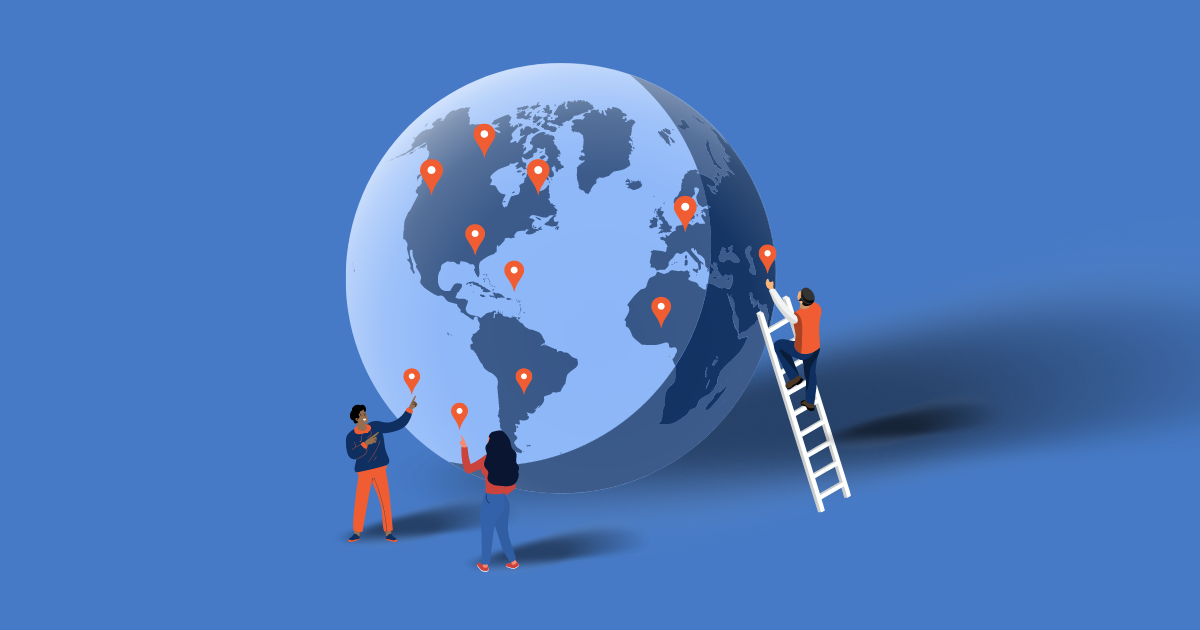Globalization and the continuing digitization of business require high-quality, culturally appropriate translation for your business’s international expansion, but language is only one piece of implementing a successful localization strategy.
You’ll also need to understand the unique cultures, customs, and regional differences among your audience. Planning ahead for these considerations ensures you are communicating effectively with your target audience and will maximize share in new markets.
What Should You Include in Your Content Localization Plan?
One of the best places to start when considering localization is to think about your key target audiences. You may already be thinking about prospective clients in existing market sectors, but what about new markets that previously were not reachable? Potential business partners are also a consideration. And remember to consider your internal stakeholders, as well.
Think of your website, product information and support, and marketing and advertising as the handshake you offer when your target audience meets you for the first time. Offering your platform—online, print, broadcast—in their native language with culturally appropriate creative increases the likelihood that people will buy from and partner with you.
Translation needs to move beyond the words to convey context. You want to make a great first impression by creating barrier-free access to your brand, so your customers get to know, learn to like, and end up trusting you.
The same concepts apply to your employees and consultants. If you operate offices in locations outside of your company’s headquarters, inaccurate translation of in-house collateral can derail your efforts.
Policies and procedures for your global workforce need to take into consideration local nomenclature so company operations remain smooth and consistent. At the same time, software localization—matching language conventions to the location—means looking at every component visible to the user. Your internal software users and developers will need to consider how they translate error messages, forms, symbols, and some graphics, among other points.
Protecting Your Message and Brand Reputation
Localization is so much more than simply translating from one language to another. Adopting a comprehensive content localization plan protects the meaning behind your messaging and ensures a consistent user experience across regions and cultures.
Key areas to consider include local customs, mores, and regional language differences. For example, connecting to distributors for your gourmet popcorn in Central and South American countries means adjusting communications to reflect that popcorn in Peruvian Spanish is canchita; in Mexican Spanish, it translates as palomitas de maiz; and in Columbia, it’s known as maiz pira.
The colors you select can have different meanings depending on the country and regional culture. For example, be sure your use of black adheres to local traditions: In China, black represents strength, but in Japan, it connotes evil. Likewise, yellow is most often associated with royalty in some Asian countries but for Buddhists, yellow is the color of spirituality.
How your marketing materials are laid out should also undergo a thorough review before release. English often translates into shorter or longer words and sentences, which could significantly change the visual aesthetics of your campaign assets. Professional linguists will evaluate your collateral to be sure your messaging remains intact and doesn’t offend or alienate potential customers.
Leveraging AI with Human Expertise
Machine translation is an exciting technology that can help produce accurate translations quickly. Although it may not be appropriate as a standalone solution for more nuanced marketing communication, you should look for a localization partner who can help you leverage AI and machine translation technology together with highly skilled professional linguists for effective translations that resonate with the culture of your target markets.
In-depth knowledge of local language customs helps you:
- Maximize budget
- Scale faster
- Bridge the gap between global and regional marketing teams
Securing the Success of Your B2B Strategy
When localization strategies fail to plan for successful expansion, your content can get stuck in bottlenecks, or your users may not feel “seen.” You need a partner who can address both your internal and external messaging needs.
ULG has a long record of helping companies with content creation, localization testing, and working with teams like yours at every stage of the process. Contact one of our localization experts today.



